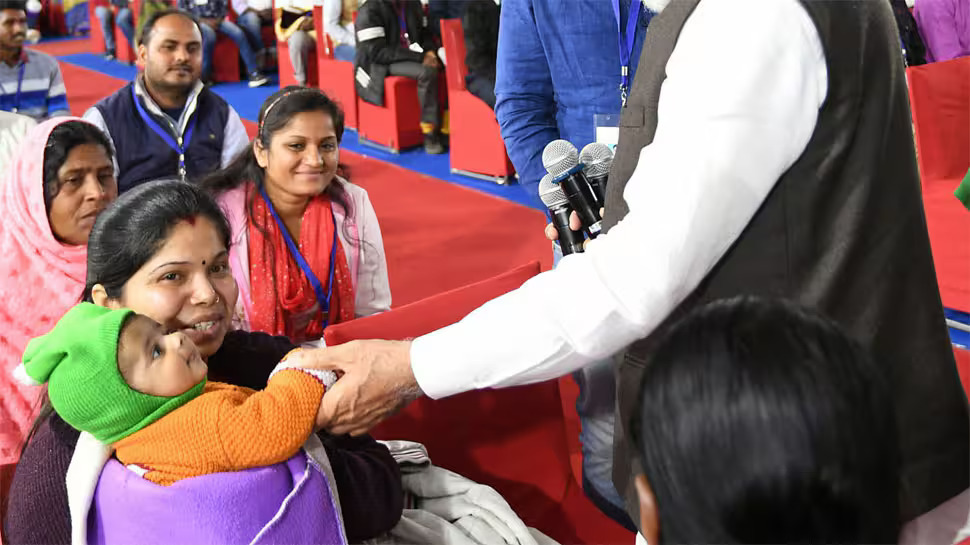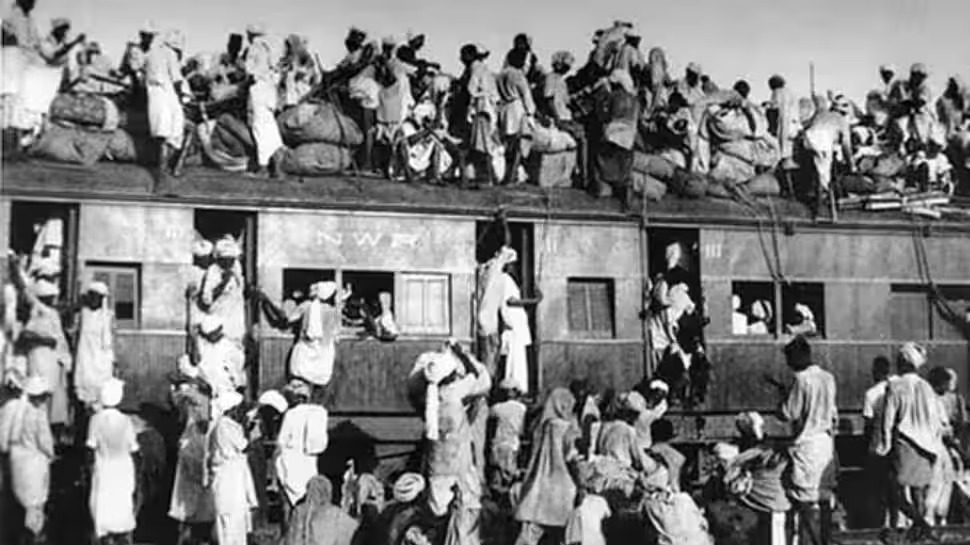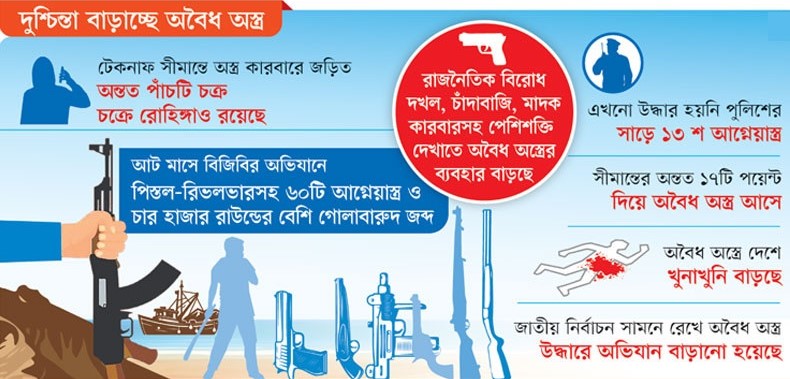Breaking News :
India Slams Border Incident, Urges Bangladesh to Uphold Boundary Sanctity After Deadly Tripura Clash
.jpg)
- H Sarker
- 23 Oct, 2025
The centuries-old cordial relations between India and Bangladesh have once again been overshadowed by a serious border dispute and a deadly smuggling incident. A violent confrontation that recently occurred in Bidyabil village in Tripura, resulting in the deaths of three Bangladeshi nationals and the murder of one Indian villager, has compelled New Delhi to make a stern public appeal. India has unequivocally urged Dhaka to undertake "necessary measures to uphold the sanctity of the International Boundary" and take concrete action to curb cross-border crimes.
Responding to media queries on the incident, External Affairs Ministry spokesperson Randhir Jaiswal delivered a clear message. He stated that the October 15 incident, which took place deep inside Indian territory, underscores the urgent need for Bangladesh to adopt decisive measures to prevent cross-border crimes and smuggling. Crucially, India reaffirmed its stance on the necessity of border fencing, emphasizing that the incident supports the requirement for its construction where needed, and for Bangladesh to back these efforts.
The Anatomy of a Violent Night in Bidyabil
According to the official account shared by India’s Ministry of External Affairs (MEA), the deadly sequence of events unfolded on the night of October 15 in Bidyabil village, located in the Khowai district of Tripura. This village lies several kilometers inside the Indian border, making the incident a clear case of illegal intrusion and trespass into sovereign Indian territory.
A group of three Bangladeshi citizens, whom the MEA identified as "miscreants" and "smugglers," crossed the international border illegally. Their primary objective, officials stated, was to steal cattle from the local Indian villagers—a grim recurring theme in cross-border crime along this frontier. The group was not unarmed; they were equipped with iron dahs (machetes) and knives, indicating premeditated readiness for violence.
Upon encountering the Bangladeshi gang attempting to drive away their livestock, the local Indian villagers immediately resisted. The smugglers, facing resistance, quickly escalated the situation to a full-blown violent assault. The MEA spokesperson detailed that the intruders "attacked and injured local villagers with iron dahs and knives, and killed one villager." This moment of violent self-defence and resistance from the villagers turned the attempted theft into a tragic, bloody conflict.
Authorities and police forces, rushing to the remote border area after being alerted, arrived to find a devastating scene. Two of the Bangladeshi smugglers were found dead at the spot. The third individual, severely injured, later succumbed to his injuries at the hospital the following day. Meanwhile, an Indian villager was confirmed dead due to the attack by the armed intruders.
Following the incident, the Indian Police registered a case, initiating a full investigation into the matter. Adhering to diplomatic protocols, the mortal remains of the three deceased Bangladeshi nationals were subsequently handed over to the Bangladesh side—a sensitive but standard procedure in such border fatalities.
A Diplomatic Faultline: Security vs. Human Rights
The clash in Tripura is not merely a local criminal incident; it has become a fresh flashpoint that brings the sensitive issue of border management back to the center of India-Bangladesh diplomatic relations.
India's Ministry of External Affairs, in its statement, placed the emphasis firmly on the security imperative. The statement clearly indicated that such intrusion and violent crime not only threaten the safety of Indian border communities but also constitute a violation of the sanctity of the International Boundary. The demand for Bangladesh to "undertake necessary measures" is a call for greater accountability and tighter control on the Bangladeshi side to prevent their citizens from engaging in illegal activities on Indian soil. The renewed push for border fencing is viewed by New Delhi as a vital, long-term security measure against porous borders that facilitate organized crime.
However, the incident provoked a sharp reaction in Dhaka. The Government of Bangladesh issued a strong protest, condemning what it called the "brutal beating and killing" of its citizens. The Bangladesh Foreign Ministry’s statement condemned the act as an "unacceptable and grave violation of human rights and the rule of law." Dhaka explicitly demanded that the Government of India conduct an immediate, impartial, and transparent investigation into the incident.
This diplomatic tug-of-war reveals the conflicting priorities of the two nations. India frames the event as a matter of national security and a necessary response to armed cross-border criminal activity. Bangladesh, on the other hand, pivots the narrative to the issue of human rights protection for its citizens, even those who may have been involved in illegal entry and theft.
The Historical Challenge of a Porous Border
The current tension is a reminder of the enduring difficulties in managing the 4,096-kilometre-long India-Bangladesh border, one of the longest international land boundaries in the world. For decades, the border has been plagued by complex issues including smuggling, illegal immigration, and cattle theft, repeatedly straining bilateral relations.
India’s extensive border fencing project is a cornerstone of its security strategy. Yet, Bangladesh has, at various points, opposed fencing, especially within 150 yards of the 'Zero Line,' arguing that it causes hardship to border communities and violates bilateral understandings.
The Bidyabil incident serves as a stark illustration of the vulnerability that exists where fencing is incomplete or surveillance is weak. Border communities on the Indian side are frequently targeted by organized gangs of cattle smugglers who operate with impunity and often carry deadly weapons. When villagers step in to defend their property and lives, violent clashes erupt, leading to tragic casualties on both sides.
The MEA’s latest emphasis on supporting the construction of fencing should be understood in this broader context. It is not just a reactive statement but a persistent call for a long-term solution to border security, which India views as an essential national security measure.
Moving Forward: The Need for Balanced Cooperation
The tragedy at Bidyabil underscores a fundamental truth: effective cooperation between the Border Security Force (BSF) and the Border Guard Bangladesh (BGB) is essential to tackle cross-border crimes. The sharing of intelligence and synchronized patrols are key to disrupting smuggling networks.
India’s demand is clear: Bangladesh must take effective action to prevent smugglers and criminals from entering Indian territory. Bangladesh's counter-demand is equally clear: there must be a transparent investigation into every border fatality, irrespective of the criminal background of the deceased, to uphold the rule of law and human rights.
The diplomatic challenge lies in finding a pragmatic balance between India’s security imperatives—the need to maintain the border’s integrity and protect its citizens from armed intruders—and Bangladesh’s humanitarian and legal concerns. Unless both nations work collaboratively to effectively stamp out organized cross-border criminal activity, incidents like the one in Tripura will continue to plague relations, threatening the peace and stability of one of South Asia’s most crucial frontiers.
The centuries-old cordial relations between India and Bangladesh have once again been overshadowed by a serious border dispute and a deadly smuggling incident. A violent confrontation that recently occurred in Bidyabil village in Tripura, resulting in the deaths of three Bangladeshi nationals and the murder of one Indian villager, has compelled New Delhi to make a stern public appeal. India has unequivocally urged Dhaka to undertake "necessary measures to uphold the sanctity of the International Boundary" and take concrete action to curb cross-border crimes.
Responding to media queries on the incident, External Affairs Ministry spokesperson Randhir Jaiswal delivered a clear message. He stated that the October 15 incident, which took place deep inside Indian territory, underscores the urgent need for Bangladesh to adopt decisive measures to prevent cross-border crimes and smuggling. Crucially, India reaffirmed its stance on the necessity of border fencing, emphasizing that the incident supports the requirement for its construction where needed, and for Bangladesh to back these efforts.
The Anatomy of a Violent Night in Bidyabil
According to the official account shared by India’s Ministry of External Affairs (MEA), the deadly sequence of events unfolded on the night of October 15 in Bidyabil village, located in the Khowai district of Tripura. This village lies several kilometers inside the Indian border, making the incident a clear case of illegal intrusion and trespass into sovereign Indian territory.
A group of three Bangladeshi citizens, whom the MEA identified as "miscreants" and "smugglers," crossed the international border illegally. Their primary objective, officials stated, was to steal cattle from the local Indian villagers—a grim recurring theme in cross-border crime along this frontier. The group was not unarmed; they were equipped with iron dahs (machetes) and knives, indicating premeditated readiness for violence.
Upon encountering the Bangladeshi gang attempting to drive away their livestock, the local Indian villagers immediately resisted. The smugglers, facing resistance, quickly escalated the situation to a full-blown violent assault. The MEA spokesperson detailed that the intruders "attacked and injured local villagers with iron dahs and knives, and killed one villager." This moment of violent self-defence and resistance from the villagers turned the attempted theft into a tragic, bloody conflict.
Authorities and police forces, rushing to the remote border area after being alerted, arrived to find a devastating scene. Two of the Bangladeshi smugglers were found dead at the spot. The third individual, severely injured, later succumbed to his injuries at the hospital the following day. Meanwhile, an Indian villager was confirmed dead due to the attack by the armed intruders.
Following the incident, the Indian Police registered a case, initiating a full investigation into the matter. Adhering to diplomatic protocols, the mortal remains of the three deceased Bangladeshi nationals were subsequently handed over to the Bangladesh side—a sensitive but standard procedure in such border fatalities.
A Diplomatic Faultline: Security vs. Human Rights
The clash in Tripura is not merely a local criminal incident; it has become a fresh flashpoint that brings the sensitive issue of border management back to the center of India-Bangladesh diplomatic relations.
India's Ministry of External Affairs, in its statement, placed the emphasis firmly on the security imperative. The statement clearly indicated that such intrusion and violent crime not only threaten the safety of Indian border communities but also constitute a violation of the sanctity of the International Boundary. The demand for Bangladesh to "undertake necessary measures" is a call for greater accountability and tighter control on the Bangladeshi side to prevent their citizens from engaging in illegal activities on Indian soil. The renewed push for border fencing is viewed by New Delhi as a vital, long-term security measure against porous borders that facilitate organized crime.
However, the incident provoked a sharp reaction in Dhaka. The Government of Bangladesh issued a strong protest, condemning what it called the "brutal beating and killing" of its citizens. The Bangladesh Foreign Ministry’s statement condemned the act as an "unacceptable and grave violation of human rights and the rule of law." Dhaka explicitly demanded that the Government of India conduct an immediate, impartial, and transparent investigation into the incident.
This diplomatic tug-of-war reveals the conflicting priorities of the two nations. India frames the event as a matter of national security and a necessary response to armed cross-border criminal activity. Bangladesh, on the other hand, pivots the narrative to the issue of human rights protection for its citizens, even those who may have been involved in illegal entry and theft.
The Historical Challenge of a Porous Border
The current tension is a reminder of the enduring difficulties in managing the 4,096-kilometre-long India-Bangladesh border, one of the longest international land boundaries in the world. For decades, the border has been plagued by complex issues including smuggling, illegal immigration, and cattle theft, repeatedly straining bilateral relations.
India’s extensive border fencing project is a cornerstone of its security strategy. Yet, Bangladesh has, at various points, opposed fencing, especially within 150 yards of the 'Zero Line,' arguing that it causes hardship to border communities and violates bilateral understandings.
The Bidyabil incident serves as a stark illustration of the vulnerability that exists where fencing is incomplete or surveillance is weak. Border communities on the Indian side are frequently targeted by organized gangs of cattle smugglers who operate with impunity and often carry deadly weapons. When villagers step in to defend their property and lives, violent clashes erupt, leading to tragic casualties on both sides.
The MEA’s latest emphasis on supporting the construction of fencing should be understood in this broader context. It is not just a reactive statement but a persistent call for a long-term solution to border security, which India views as an essential national security measure.
Moving Forward: The Need for Balanced Cooperation
The tragedy at Bidyabil underscores a fundamental truth: effective cooperation between the Border Security Force (BSF) and the Border Guard Bangladesh (BGB) is essential to tackle cross-border crimes. The sharing of intelligence and synchronized patrols are key to disrupting smuggling networks.
India’s demand is clear: Bangladesh must take effective action to prevent smugglers and criminals from entering Indian territory. Bangladesh's counter-demand is equally clear: there must be a transparent investigation into every border fatality, irrespective of the criminal background of the deceased, to uphold the rule of law and human rights.
The diplomatic challenge lies in finding a pragmatic balance between India’s security imperatives—the need to maintain the border’s integrity and protect its citizens from armed intruders—and Bangladesh’s humanitarian and legal concerns. Unless both nations work collaboratively to effectively stamp out organized cross-border criminal activity, incidents like the one in Tripura will continue to plague relations, threatening the peace and stability of one of South Asia’s most crucial frontiers.
Leave a Reply
Your email address will not be published. Required fields are marked *
Hello http://banglaconnection.com/fekal0911 Administrator
Dear http://banglaconnection.com/fekal0911 Owner







